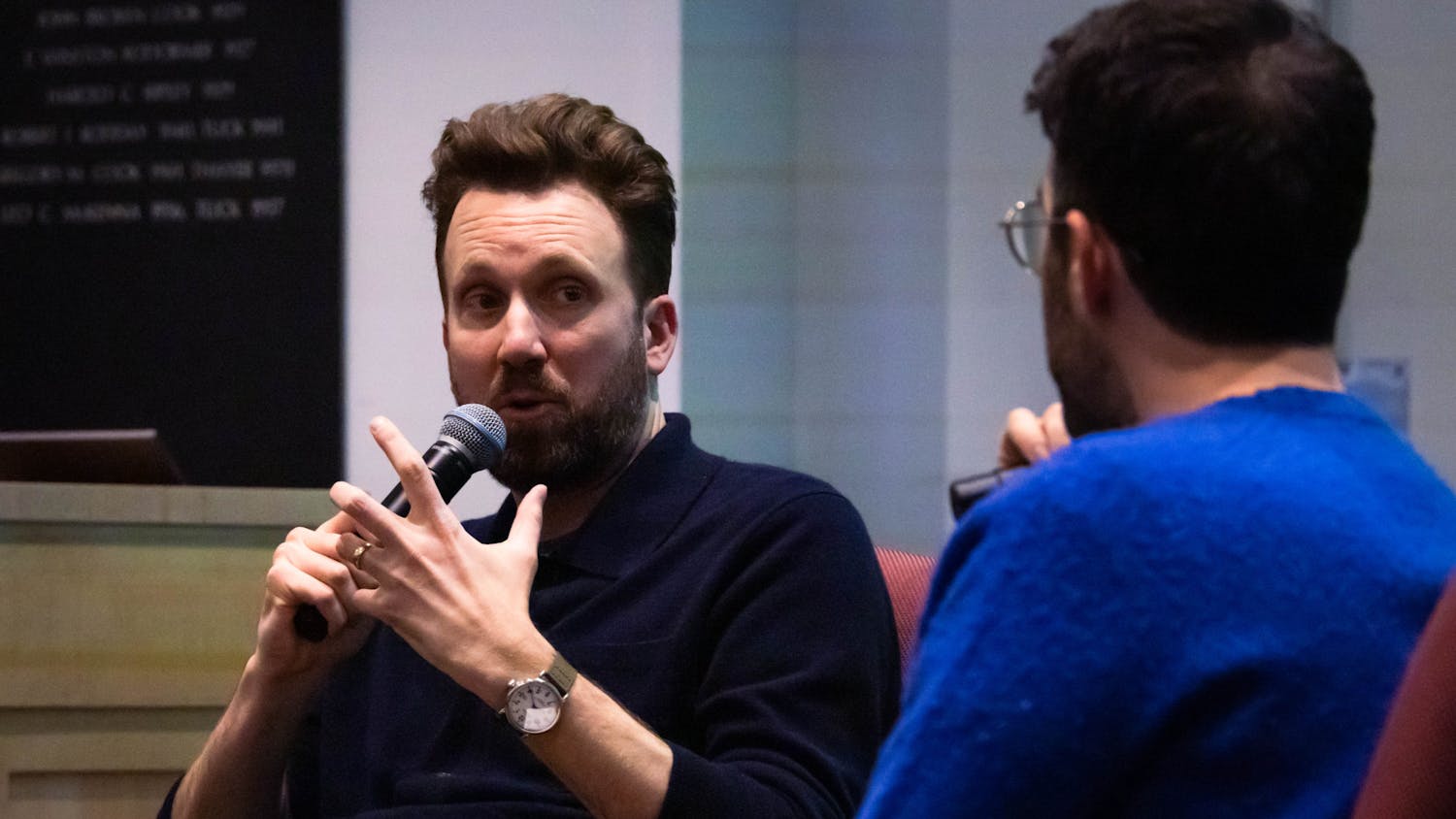Maybe it's a Daniel Webster thing.
If the joke circulating across campus weren't, "How many intellectual, idealistic lawyers does it take to run this place?" It might well be: What don't College President James Freedman and provost-designate Lee Bollinger have in common?
In the search for a provost, Freedman certainly seems to have picked a soul mate.
Bollinger, the law school dean at the University of Michigan, was in Hanover earlier this week visiting classes and meeting with professors in the government department.
In a brief interview during a walk across campus, he said, "I want to do whatever I can to help add to the intellectual life of the institution."
It may sound familiar but it should hardly be surprising. Freedman has made a point of building a team of senior administrators who share his values.
Like Freedman, Bollinger is a career legal scholar. He graduated from Columbia University Law school and was a clerk for Chief Justice Warren Burger of the U.S. Supreme Court in 1973.
Freedman graduated from Yale Law School and worked as a clerk for Thurgood Marshall, the late Supreme Court Justice, while Marshall was still a federal appeals court judge in New York City.
In 1973, Bollinger joined the faculty at the University of Michigan Law school and worked his way up to the position of dean. Freedman joined the University of Pennsylvania Law School faculty in 1964 and also worked up to dean position.
Both men have a soft spot for the newspaper press. After graduating from Harvard University, Freedman spent two years working as a reporter for the Manchester Union Leader. Bollinger grew up in a newspaper family in Oregon and has focused his legal studies on freedom of speech and freedom of the press.
Bollinger and Freedman both have an intellectual yearning that reach beyond their professional interests. Currently Bollinger is writing a book about public institutions concerned with high culture. He graduated from the University of Oregon and from Columbia University Law School.
Like Freedman, who moved from a Big Ten school to take on the presidency of a prestigious Ivy institution, Bollinger said one reason he was attracted to the provost position was the College's stature.
"Dartmouth is one of the great institutions of higher education in the country," he said. "I consider it a tremendous honor. I feel very proud to be connected with the institution as provost."
On the walk across campus, from Silsby Hall to the Hanover Inn, Bollinger seemed tired. These initial visits involve so many meetings and appointments, Parkhurst has a hard time keeping track of him.
He strolled slowly and spoke quietly and like a stranger to Hanover paid attention to 'don't walk' signs. At 47, his sandy hair has only a dash of gray.
On Wednesday, in Professor Lynn Mather's Government 62 course, Law and the Courts, Bollinger spoke about the University of Michigan's code against hate speech -- the first of its kind ever developed in the country -- which was eventually ruled unconstitutional by the Supreme Court.
Later in a meeting with the government department, Bollinger gave a talk about government regulation of the media.
In both appearances, he lectured casually and with a firm grasp of his subject material. He was received well by both the students and the professors but only the students commented on his Robert Redford looks (one of the few things he does not share with Freedman.)
"He has a very commanding presence," said Mark Scott '95. "The fact that he was able to conduct an entire lecture without consulting his notes clearly illustrates he has expertise in the matter."
At Dartmouth Bollinger plans to teach one course each year either on freedom of speech and of the press, on media law or on public institutions concerned with culture. The courses would probably fall under the government department.
Obligations to the University of Michigan will keep Bollinger in Ann Arbor until next July but he plans to visit Hanover about once a month.
He said the key to financial success for institutions of higher learning is building up private giving. Like Dartmouth, the Michigan Law School is in the middle of a capital campaign which began under his administration.
But he said "the important decisions of a dean or provost are hidden from public view" and that it is the cumulative result of these smaller, isolated decisions that shape an administrator's larger goals.
"The question you want to ask is what values does somebody bring to the position," he said. "I have a deep respect for the intellectual and artistic sides of human existence."



